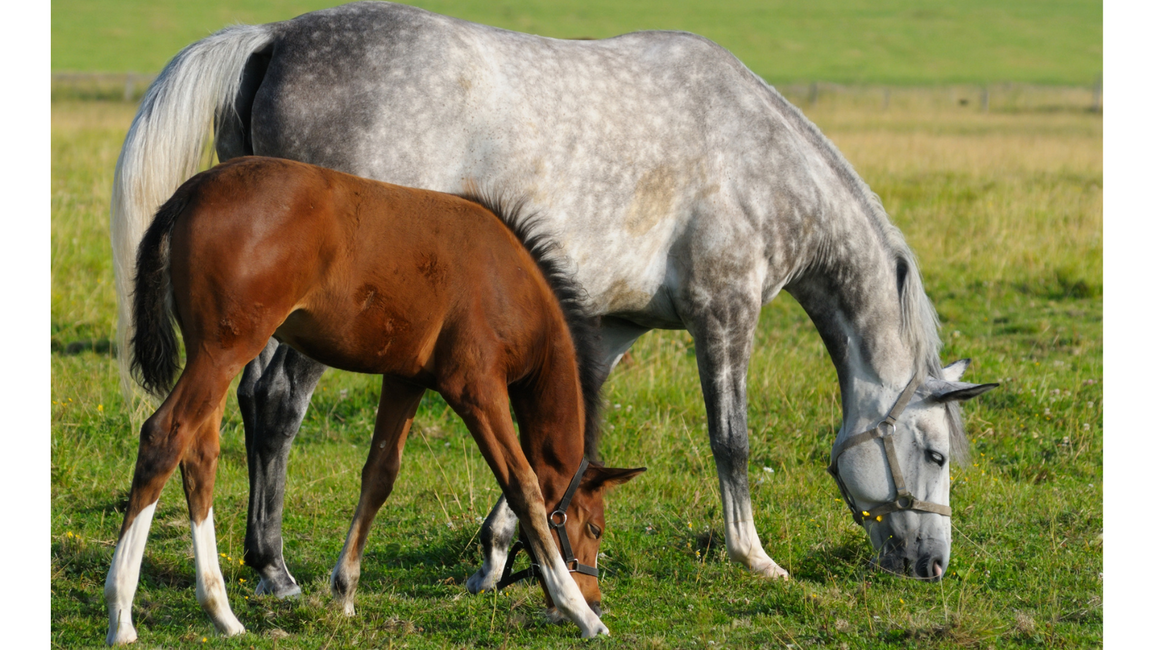
Difficult to Breed Mares Have Options
Well, here it is. May. And you’re still struggling to get that last mare bred. She’s given you problems in the past, but it’s never taken this long before! Sure, she’s getting a little age on her but that hasn’t stopped your other mares.
Your vet comes regularly to check her cycle and you’ve bred her right on time…multiple times…and 14 days later, nothing. So what gives? You’re doing everything you can, right?
Try adding a DHA supplement.
There are many reasons mares experience breeding difficulties and, the fact is, most will at some point throughout their lives. Sometimes, even mares with no previous history of breeding problems, can experience uterine inflammation post breeding which can lead to slipped pregnancies. This can be even more prevalent in mares bred with frozen semen.
Many studies have shown that supplementation with Omega Fatty Acids (OFAs) can be helpful in regulating ovulation rates, increasing the number and size of ovarian follicles and even play a role in corpus luteum progesterone production.
More recently, researchers at Auburn University utilized Releira, a concentrated algal DHA supplement, to evaluate DHA supplementation in mares with difficult breeding histories. Its use proved immensely helpful in reducing uterine inflammation post breeding [1] [2] and reducing the number of cycles per pregnancy [2].
OFAs, and DHA in particular, work to regulate inflammatory responses within the body and support healthy immune and systemic function. There are many OFA supplements out there, but it is important to choose one with a high concentration of DHA when searching for a reproductive remedy. Many OFA supplements contain high levels of flaxseed because of its cost effectiveness and availability. While flaxseed is high in ALA, an Omega-3, this does not have the same effect as DHA.
Learn more about the differences in OFAs here!
That said, there are also several DHA supplement options available and these also require knowledge and discretion to sort out which will suit your needs. Horses are herbivores and, since the majority of DHA comes from fish oil sources, research and logic support that these supplements are not as bioavailable to the horse. Releira is a patent-pending supplement high in algae derived DHA – the only 100% vegetarian source available for horses. In fact, the DHA used in Releira is the same DHA found in human infant formulas.
So, if you’re finding yourself in that late season slump, don’t fret. You’ve still got options! Talk to your veterinarian about adding Releira to your mare’s regimen and, if you want the best foal possible, continue supplementation through weaning!
References:
[2] Brendemuehl JP, Altman J, Kopp K. Post-breeding Inflammatory Response is Reduced and Per Cycle Pregnancy Rates Increased by Oral Supplementation of N-3 Fatty Acids in Thoroughbred Mares Bred by Natural Service. Equine Vet Journ. In Press.

